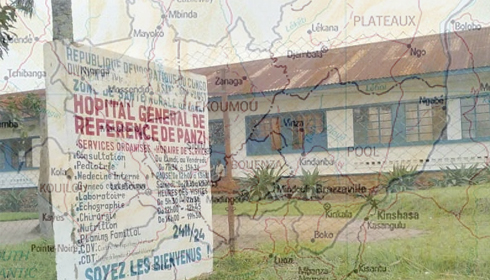
Acute Respiratory Infections Complicate Malaria Situation in DRC
The World Health Organisation (WHO) has issued a Disease Outbreak News (DON) on an increase in mortality, mainly among children under the age of five, due to febrile sickness in the Panzi health zone, Kwango province, Democratic Republic of the Congo (DRC).
Since its initial report on November 29, the outbreak has seen a significant increase in cases that fit the description of febrile diseases, such as cough, bodily weakness, and other symptoms associated with acute respiratory infections. Reports indicated 891 instances as of December 16. While the weekly number of reported deaths has remained relatively consistent at 48, the outbreak highlights the major health issues confronting the region's vulnerable communities.
Laboratory examinations have revealed a complicated picture, with positive results for malaria, common respiratory viruses like influenza, rhinoviruses, and SARS-CoV-2, as well as other respiratory diseases. These data suggest that seasonal viral respiratory infections, malaria, and possibly severe malnutrition are the likely causes of the outbreak.
"This event highlights the severe burden of common infectious diseases in a context of vulnerable populations facing food insecurity," stated [Official from WHO or similar organisation]. "It emphasises the need to strengthen access to health care and address underlying causes of vulnerability, particularly malnutrition, given the worsening food insecurity."
We have established multidisciplinary fast reaction teams to examine the epidemic and enhance response efforts. Efforts are underway to improve surveillance, diagnose and treat patients, and perform risk communication and community involvement activities.
This outbreak serves as a vivid reminder of the serious public health concerns that many countries face, particularly those with frail health systems and high levels of vulnerability. Addressing these difficulties necessitates a multifaceted approach that includes improving basic health care, increasing access to vital drugs and diagnostics, and addressing the underlying social determinants of health, such as poverty, food insecurity, and malnutrition.
The outbreak in the Panzi health zone highlights the complex interaction of elements that can lead to disease outbreaks, such as the presence of several pathogens, environmental conditions, and underlying social and economic weaknesses. The high disease burden among children emphasises the important need for improved child health services, including immunisation programs, nutrition treatments, and access to adequate care for common childhood illnesses.
This episode also serves as a timely reminder of the significance of strong surveillance systems. The swift introduction of increased surveillance in the Panzi health zone was critical in detecting the epidemic and leading the response. Strengthening global monitoring networks is critical for early detection and response to disease outbreaks, allowing for appropriate actions to prevent future transmission and reduce the burden on affected populations.